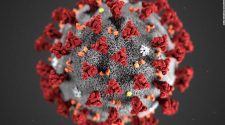With health costs in a never-ending upward spiral – in spite of the still mysterious provisions of the “Obamacare” legislation that was recently signed into law – add that to the concerns about the safety of prescription medications, and it’s easy to understand why many Americans are turning to holistic medicine to help them achieve and maintain good health.
With that being said, most Americans still wonder “Just what is holistic health?”
According to the American Holistic Health Association, holistic health is actually your approach to life. Rather than focusing on specific illnesses or parts of the body, this approach considers the whole person and how they interact with their environment.
Recognizing that the individual as a whole is made up of interdependent parts, which are the physical, mental, emotional, and spiritual – holistic health emphasizes the connection of the mind, body and spirit.
It believes when all three of these elements are functioning at their peak, the host will reap healthy benefits from the proper maintenance of the holistic equilibrium.
The earth is made up of systems such as air, land, water, plants and animals. If life is to be sustained they cannot be separated, for what is happening to one is also felt by all of the other systems.
Likewise, Holistic health is also based on the conceptual law of nature – that a whole is made up of independent parts.
Holistic health is also an ongoing process. As a lifestyle, it includes a personal commitment to keep moving toward the right end of the wellness continuum with the belief that no matter what their current state of health – people can continue to improve their levels of well-being.
Another hallmark of the holistic healthy living philosophy is the belief that people must accept responsibility for their own level of well-being that stems from the everyday choices they make that can affect their health for the better – or for the worse.
To reinforce that point, holistic advocates point to a recently released US Centers for Disease Control and Prevention report that concluded everyday lifestyle choices were among the most important key factors influencing an individual’s state of health.
The key factors influencing a person’s health scored as follows:
Everyday Lifestyle Choices 53%
Environment 19%
Heredity 18%
Medical Care Quality 10%
As evidenced in these findings, the personal decisions people make about lifestyle is by far the largest factor in determining their potential level of wellness.
Again, holistic health is based on the premise that illnesses and premature death can be traced back to lifestyle choices.
There are the well-known dangers connected with drugs, alcohol, nicotine and unprotected sexual activity, as well as excess sugar intake, caffeine consumption patterns, even something as seemingly insignificant as having a negative attitude!
When you combine these hazards with insufficient exercise, overeating and low self-esteem, they gradually accumulate harmful effects.
With time they can diminish the quality of “the environment within” a human being and can also set the stage for illness to take hold.
Quality of life is actually determined by a vast number of seemingly small choices that are made on a daily basis, yet over time these can accumulate and make a decisive difference in one’s health.
As a general overview, holistic health focuses on reaching higher levels of wellness.
After all, people are motivated by how good it feels to have lots of energy and enthusiasm for life!
In the current health scene, more and more physicians are using the holistic approach to health and healing with their patients. Holistic physicians embrace a variety of safe, effective options in the diagnosis and treatment of their patients, including:
• Education for lifestyle changes and self-care
• Complementary alternatives
• Conventional drugs and surgery
People who practice holistic health in their own lives may have fewer chronic illnesses or major health problems.
However, if conventional medical care is required for an accident or illness, a medical doctor who follows the principles of holistic medicine may provide important reassurance to the dedicated holistic-oriented individual.
Most people find holistic health principles easy to practice once the proper habits are formed.
Is holistic health for you?
Only you can answer that question. No matter what the answer is for now, it’s still probably a good idea to keep up your research on the topic – while realizing that the uncertain future of the US health care system now demands we all make a greater effort than ever to maintain our health on our own terms.
So here’s to wishing you and yours a healthy and vibrant life in the years to come!
















